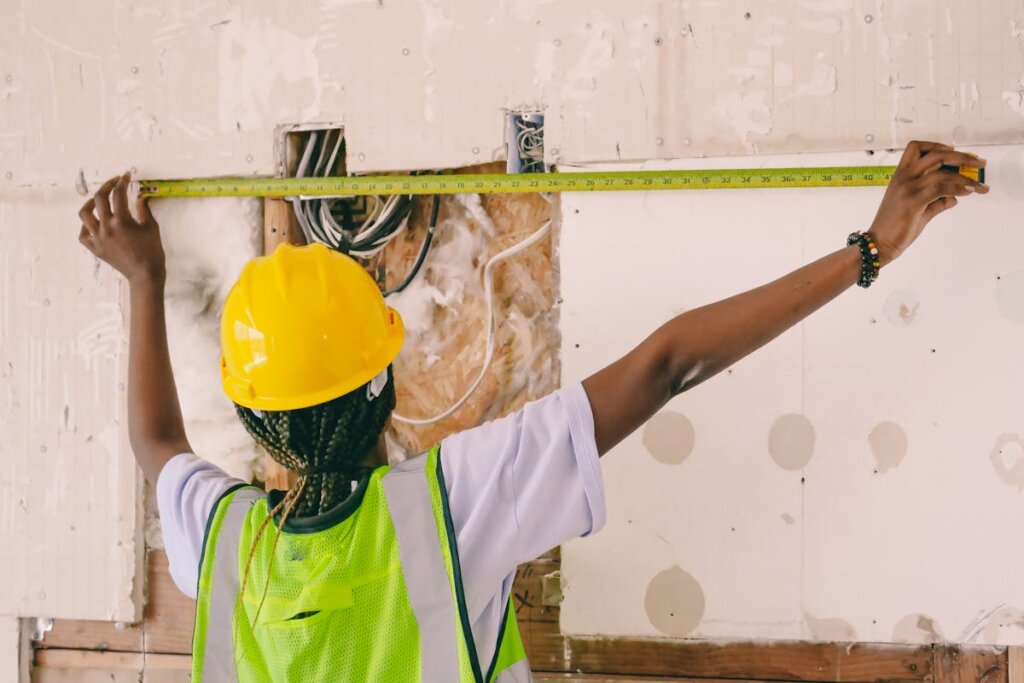
For many Connecticut homeowners, rewiring a house becomes necessary when dealing with outdated electrical systems, safety concerns, or new appliance demands. Homes built several decades ago often relied on knob-and-tube wiring or early aluminum wiring, both of which pose risks and cannot keep up with modern electrical usage.
The decision to rewire is not just about convenience; it is a safety investment that protects your home from potential electrical fires, improves efficiency, and ensures compliance with current building codes.
Understanding rewire CT home cost before starting the project helps homeowners plan properly and avoid financial surprises. Rewiring is a major upgrade, but one that adds long-term value and peace of mind.
Factors That Influence Rewiring Costs
The overall rewire CT home cost depends on several important factors. The size of your home is one of the biggest cost drivers. A small bungalow with one or two bedrooms will cost significantly less to rewire than a large colonial with multiple floors and complex layouts. Larger homes require more wiring, more labor hours, and more circuit updates.
The age and condition of your current electrical system also play a role. If your home still has knob-and-tube wiring or fused panels, the project will require more extensive updates. Older wiring often means outdated electrical panels, which may need replacement to accommodate modern circuit breakers. This adds to the total cost.
Accessibility is another factor. Homes with finished basements, enclosed walls, or tight crawl spaces require more time and effort to run wires compared to homes with open access. If electricians must cut into walls, ceilings, or floors, homeowners should also budget for drywall repair and repainting once the rewiring is complete.
Finally, labor rates and permit costs in Connecticut affect the total expense. Electrical work must be performed by licensed electricians, and most municipalities require permits and inspections to ensure compliance with state safety codes.
Average Cost to Rewire a Connecticut Home
On average, the rewire CT home cost for a standard single-family house ranges between $8,000 and $15,000. Smaller homes or partial rewires can fall closer to the lower end, while larger, older homes with extensive needs may exceed $20,000.
This price includes materials, such as wiring, outlets, and breakers, along with labor costs for licensed electricians. It also covers inspections and permits. For homes that require complete panel replacement or additional upgrades, costs can rise even higher. While the expense is significant, most homeowners view it as a long-term investment that increases resale value and ensures safety.
Rewiring and Safety Upgrades
Rewiring is often completed alongside other safety improvements. Ground fault circuit interrupter (GFCI) outlets, arc fault circuit interrupters (AFCI), and additional grounded outlets may be required to meet code. These upgrades add to the rewire CT home cost but are essential for protecting your household from electrical hazards.
Insurance companies also look favorably on homes with updated wiring. Many insurers raise premiums or even deny coverage for homes with outdated electrical systems. After completing a rewiring project, homeowners often see improved insurance rates and better peace of mind.
How Long Does Rewiring Take?
The time it takes to rewire a home varies by size and complexity. For most single-family homes in Connecticut, the project can take one to two weeks. During this time, electricians may need to shut off power to parts of the house, creating temporary inconvenience. Planning ahead with your contractor helps minimize disruption and ensures the work is completed efficiently.
Homeowners should also plan for cleanup and possible repairs after the project. Because rewiring often requires cutting into walls, ceilings, and floors, patching and painting are usually needed once the electrical work is finished. These finishing costs should be included when budgeting for the overall project.
How to Budget for a Rewire in Connecticut
Budgeting for rewire CT home cost requires careful planning. Begin by getting multiple quotes from licensed electricians in your area. Each home is different, so detailed inspections are necessary to determine exactly what is required. Ask for itemized estimates that break down materials, labor, permits, and additional costs.
If you are preparing to sell your home, consider whether a full rewiring is necessary or if targeted updates will suffice. Some buyers may accept a lower sale price for a home that needs rewiring, while others expect the work to be completed before purchase. For sellers who want to maximize value, completing the upgrade can make the property more appealing and help avoid issues during inspection.
Neighbor Joe Provides an Alternative
If the rewire CT home cost feels overwhelming, there is another option for homeowners who want to sell without making major electrical upgrades. Neighbor Joe buys houses in Connecticut as-is, which means you do not have to spend thousands of dollars rewiring before listing your property. We purchase homes regardless of condition, whether they have outdated wiring, structural issues, or other major repair needs.
By selling directly to Neighbor Joe, you avoid costly renovations, inspections, and drawn-out negotiations. We provide fair cash offers within 24 hours and close on your timeline. Best of all, there are no realtor commissions, no hidden fees, and no closing costs. Instead of sinking money into rewiring, you can sell as-is and move forward quickly.
Final Thoughts on Rewiring Costs
Rewiring a home is one of the most important upgrades a Connecticut homeowner can make. It ensures safety, improves efficiency, and adds long-term value to the property.
While the rewire CT home cost can feel intimidating, understanding the factors involved and planning accordingly makes the process more manageable. For those who are not in a position to invest in such a project, selling directly to a local cash buyer like Neighbor Joe offers a simpler alternative.
Whether you choose to rewire before selling or sell your home as-is, understanding your options helps you make the right decision for your financial future.

